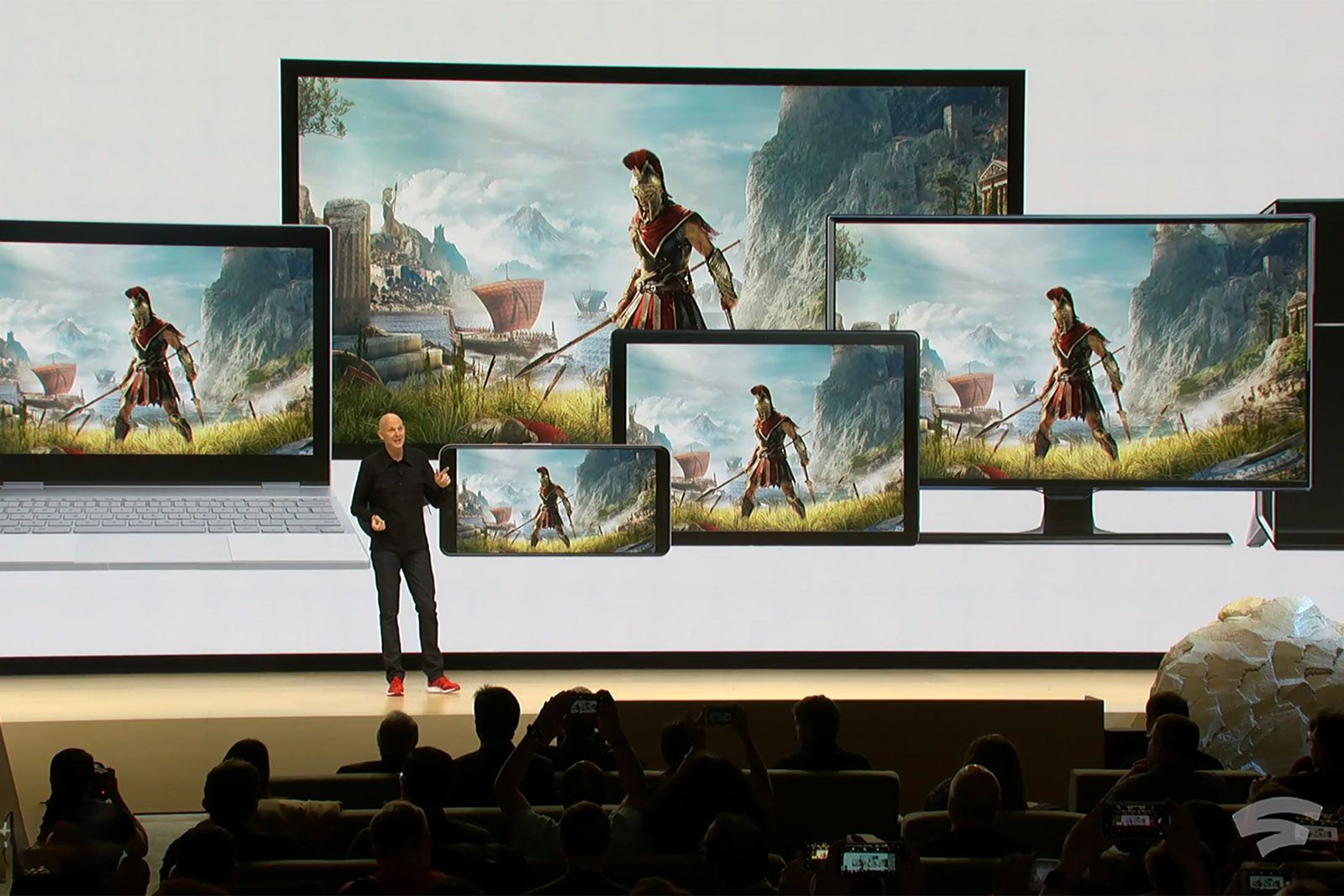Google recently announced the "future of gaming" in the form of its own cloud gaming platform Stadia at this year's Game Developers Conference in San Francisco. Stadia is set to allow gamers to play triple-A titles laptops, desktops, TVs, phones and tablets all via the cloud.
Since the launch, vice president of Google, Phil Harrison, has been busy discussing why Google's Stadia is going to be a really big deal for gaming. If anyone knows their stuff, it's this man as he's also worked for Microsoft and Sony so knows a thing or two about the gaming industry.
- Google announces its cloud gaming platform at last: Stadia
- What is Stadia? Google's cloud gaming service and hardware explained
Phil Harrison has been speaking to Polygon about the plans for Stadia and why it will work.
Will Stadia work?
One of the most interesting things he said was to explain how the demonstration at GDC was entirely real and live. All thanks to technical problems:
"Our original intention was to bring a dev kit and have it sat in the back of the stage, and run it streamed from that dev kit to all of those devices. We had a technical problem on Saturday. So that presentation live on stage was running from a Google data center in South San Jose, 50 miles away. So it was actually easier for us to run our presentation live on the internet than it was to do it locally with a machine in the room."
While talking to Eurogamer, Phil also made it clear that Stadia is likely to succeed because of Google's datacentres. Google has been "building on pretty much 20 years of innovation at the datacentre level, deep, deep technology and networking and infrastructure, and the ability not just to get the bits to the destination in the most efficient way with some very intelligent networking routing, but also the performance inside the datacentre."
This means that the connections for gamers will be more stable and powerful than other cloud gaming services that might not have the hardware to back it up.
Who will be able to play?
He also explained that the plans for Stadia are to be able to eventually reach everyone, but acknowledged that because it's cloud-based, it's going to rely on the broadband speeds in the area. Stadia will be launched in the UK, US, Canada and Central Europe in 2019, but it will take time to roll out further.
However, Phil did suggest that the arrival of new technologies (like 5G) will help speed things along and give more people access to Stadia. He also told Polygon that if you "get a good YouTube experience, you’ll get a great Stadia experience."
What about consoles?
There was also some discussion around the future of games consoles - if Stadia takes off, does that mean the end of Xbox and PlayStation?
Phil said, "This is going to be a very dramatic shift in the way that games are made and played." But also acknowledged it's not going to happen overnight. Gamers will need to make a conscious move from those devices to the cloud.
Microsoft also has some big plans in the works that are likely to be unveiled at E3, so it's not like the competition are resting on their laurels.
What games will there be?
Google chose to show off Assassin's Creed: Odyssey running on Stadia and we know Doom Eternal is also in the works, but the company hasn't said what other games are coming. They have mentioned that there will be support for both Unreal and Unity meaning there's plenty of potential for game developers creating content for the platform.
Phil did have things to say about the games that will be coming as well:
"We've had deep conversations (with publishers) over a number of years now. We've shipped over a hundred development kits already. We've got thousands of creatives already underway. So you'll see a pretty amazing lineup come June."
It seems that the future of gaming is certainly going to be interesting, but we'll have to wait until June to find out more.

